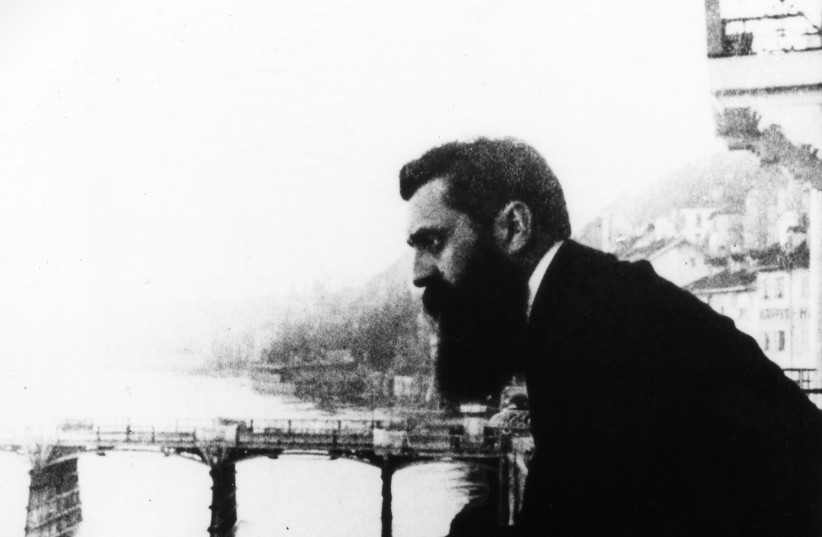The state-funded Herzl Museum in Jerusalem is in the first stages of appealing to the Arab-Israeli community and is translating all of its exhibits into Arabic.
“When I discovered last year that the museum operates in eight different languages, but Arabic, which is an official language in Israel, wasn’t one of them - I asked our team to start working on changing this reality” Herzl's chairman Uri Zaki revealed in an interview with The Jerusalem Post.
The Herzl museum includes audiovisual 4D film exhibits about Herzl's path to Zionism, his activities in the Zionist political movements and comparing Herzl's vision for Israel as outlined in his book The Old New Land to Israel's achievements in practice. The museum is managed by the World Zionist Organization; Zaki was appointed as chairman as a senior member of the left-wing Meretz Party. His wife is Environmental Protection Minister Tamar Zandberg, who is also a former party leader.
Theodor Herzl was an Austro-Hungarian Jewish journalist and political activist, considered to be the father of modern political Zionism. Herzl formed the Zionist Organization and promoted Jewish immigration to Palestine in an effort to form a Jewish state. He is considered to be the "Visionary of the State" of Israel.
“Herzl's heritage deserves to be exposed to the Arab public through the Herzl Museum,” Zaki said, adding that “Arab Israelis need to hear about the Zionist story through Herzl's eyes. Therefore, I thought it was important that our museum be made accessible to the Arab public.”

Zaki explains that the first stage is subtitles in Arabic that have already been translated and created, to be implemented in the audio-visual aspects of the museum. “The second step will be dubbing the videos into Arabic as we have done in other languages,” he said.
The third stage will be “training Arabic speaking instructors and tour guides, and discussing with them how to deal with difficult questions and situations that will arise among Arab Israelis.”
“Herzl himself told us that we know we will succeed according to our attitude towards the Arab minority in Israel," Zaki said when asked by the Post what message is important to get across to an Arab student who visits the museum for the first time.
"His legacy to us was how we should treat the Arab minority within us. It is important for the Arab public to know Herzl's legacy since this is the source of the establishment of the state," he responded.
"There are also negative elements in Arab history when it comes to Zionism and I would like them to hear out what Herzl had to say. Herzl was in favor of integration and equality; he wrote about it in his book. He was in favor of freedom to vote and many more elements regarding Arabs in Israel," Zaki said.
“I want [the Arab-Israeli community] to have a chance to learn about Zionism and to know that we are making an effort to give them a chance," the museum head said.
Zaki also said that he has already started a soft launch approach toward haredi (ultra-Orthodox) opinion-makers. "It is important for me to be exposed to other audiences as well as to ultra-Orthodox society. As opposed to the Arabic speaking public, we don’t need to translate anything with the haredi population; we’re not working on subtitles in Yiddish at the moment,” he jokingly said.
